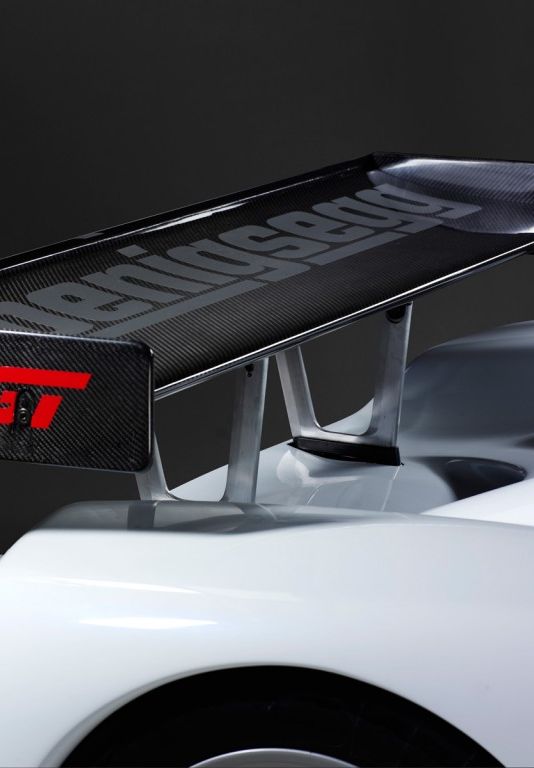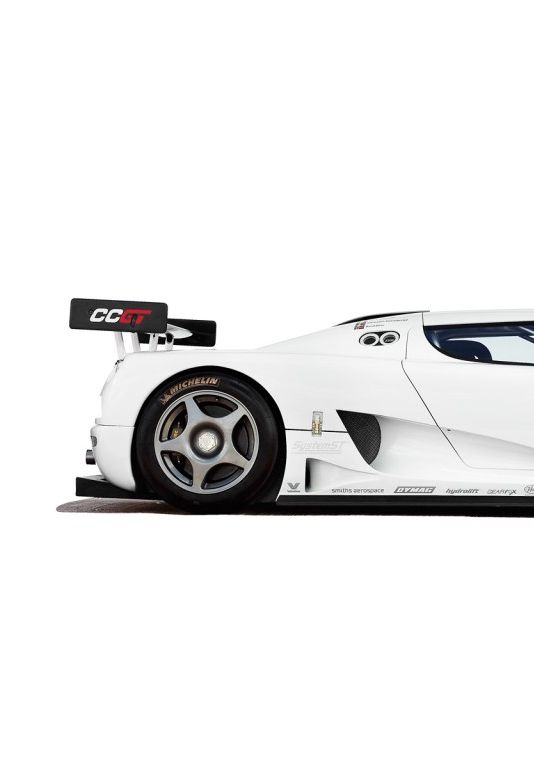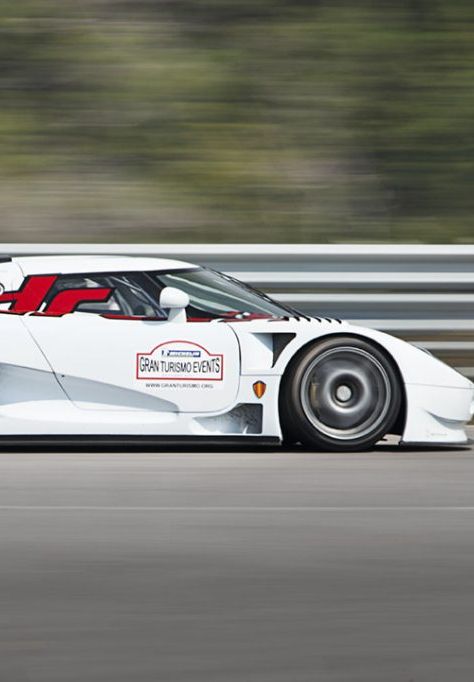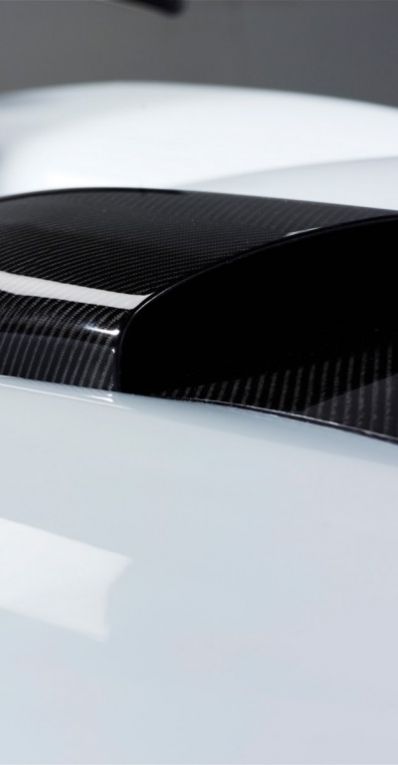The CCGT was created as a side project by Christian and the engineers at Koenigsegg. When Christian started building and designing the first CC prototype, racing was always part of the bigger picture. Therefore, Christian studied the ACO Le Mans regulations and made sure that his car met the requirements of one of the most interesting racing categories of the time – the GT1 class.
According to the ACO Le Mans regulations at the time, a participating car could not be wider than 2 meters and the cockpit had to cover at least 70% of the car’s width. Christian designed the CCGT exactly according to these specifications to make it the perfect basis for a GT1 car.

The CCGT was a side project that was worked on during development and production breaks, so the first prototype took several years to complete. It was based on a Koenigsegg CCR, but included some CCX components – in particular the front headlights.
The result was overwhelming. The car was extremely stiff, weighed less than 1,000 kg (without ballast, which was required to meet the category’s minimum weight of 1,100 kg) and generated over 600 kg of downforce. The 5.0 l naturally aspirated V8 engine produced 600 hp – the maximum in the category. The few people who have driven the CCGT say that it drives like a dream and would have been very competitive.


Why did the CCGT never race? Two months after Koenigsegg started testing the CCGT, the ACO and FIA changed the regulations for the GT1 class. Carbon fiber monocoques were no longer allowed, and the minimum production numbers increased from a total of 20 cars over several years to 350 cars per year. These new rules meant a premature end for the Koenigsegg CCGT.



5.0L NA V8
Nira ECU, 32 valves
Magnesium 6-speed
1100 kg
100L
362 mm carbon ceramic
Renn-Pushrod
Cd 0.297
Carbon monocoque
Carbon
5.0L NA V8
Nira ECU, 32 valves
Magnesium 6-speed
1100 kg
100L
362 mm carbon ceramic
Renn-Pushrod
Cd 0.297
Carbon monocoque
Carbon